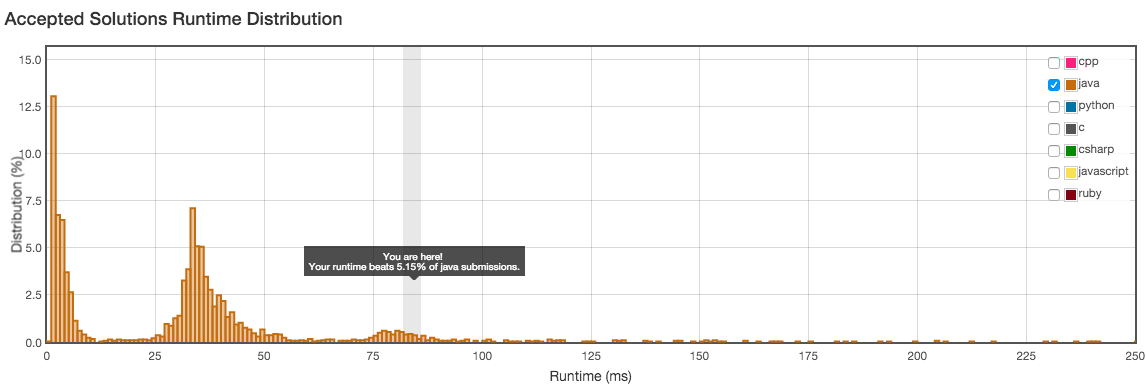LeetCode – Essential? Optional? Big Deal Or Not?
People who pursued a computer-related profession in 2015 onwards probably used LeetCodeat one point in their career – or perhaps not.
Last month, a poll about LeetCode at Hacker Newsstarted after one user asked: “Is the LeetCode grind necessary to land a high-paying remote job?”
Based somewhere in Western Europe, the said person (user “throwawaynay”) shared that in all the four companies he/she previously worked for, not one made him/her sit for an interview involving LeetCode.
This Hacker News user is looking for a remote job in an international company that pays USD80,000-100,000 annually.
Before this user continues with the search, he/she wants to get the opinions of fellow users on whether LeetCode can help him/her get the kind of job he/she is eyeing or not.
At the time of this writing, 234 voted “Yes,” 622 voted “No,” and 50 voted “Depends.”
Is LeetCode, in the words of the user, “an absolute necessity” when it comes to building a career in the information technology (IT) sector?

How to use LeetCode effectively
LeetCode Meaning
Let’s get the answer straight from the horse’s mouth.
“LeetCode is a social platform for preparing technical interviews for companies in the IT industry,” according to the Twitter profile of this California-based company founded in 2015.
Blind, an online community of professionals from various industries, gave another succinct description in a 2018 Medium article.
“It’s a website where people – mostly software engineers – practice their coding skills,” stated Blind.
In its website, LeetCode indicated that it currently supports 14 coding languages. It uses development tools, one of which is Playground.
Back in 2018, there were 800 questions created by LeetCode, according to Blind.
LeetCode categorized these questions through their difficulty level (Easy, Medium, Hard). For each question, several solutions are presented.
As of 2021, San Francisco-based software developer Jordan Bishop wrote in Quora that the questions already reached over 1,100. It also seems that LeetCode’s website is not updated as Bishop said that it supports more than 18 programming languages.
Is LeetCode Worth Doing?
In its website, LeetCode promises to help people get their “dream job.”
At Quora, LeetCode Founder and Chief Operating Officer Winston Tang wrote, “The purpose of LeetCode is to provide you hands-on training on real codinginterview questions.”
Tang added that LeetCode has a feature called Online Judge, which provides “immediate feedback on the correctness and efficiency” of the user’s algorithm.
The picture below shows what Tang was saying.
Cyndy Ishida, a former software engineering intern at Microsoft, wrote in Quora that what she personally liked about LeetCode was its “straight to the point problem statements.”
One comment in the Blind community echoed the same observation: “LeetCode is generally to the point.”
It endorses the use of LeetCode for three reasons:
(a) “more questions”
(b) “better quality”
(c) “a strong user base”
Blind likewise enumerated the following reasons why its users rely on LeetCode:
(a) it makes them ready to answer technical questions during the job interview
(b) it boosts their chances to land a job at FAANG
FAANG is an abbreviation referring to four major American technology companies(a general term is Big Tech), namely, Facebook (now Metaverse), Apple, Amazon, Netflix, and Google (now Alphabet).
(c) it can be a factor for salary increase
For its “company-specific programming questions,” Jordan Bishop, who also happens to be an interview consultant for Big Tech, commended LeetCode for being a “great resource to use.”
Even so, he doesn’t advise using LeetCode “on its own.”
For one, solutions “don’t have an in-depth explanation,” according to Bishop. He said that extensive explanations are “crucial” in a user’s learning process.
Bishop recommended using LeetCode together with other available “interview preparation tool(s)” online, such as GeeksforGeeks, Interviewing.io, and Tech Interview Pro.
Do Employers Look At LeetCode?
Per Blind’s Medium article, yes, companies – but not all – look at LeetCode.
There might be companies and individual professionals as well who view LeetCode in a negative light.
One of them is California-based computer scientist Anirudh Mathad. In his 2018 article published by LinkedIn, he described LeetCode interviews as “toxic.” Several recruiters promote them, which he deemed to be “a very bad trend.”
Mathad, who works at Adobe's Cloud Technology Group, said that focusing much on LeetCode discourages human interaction among engineers. This human interaction matters, he said, in solving “real world software engineering problems.”
In addition, he reacted that it’s not good for interviewers to focus more on questions related to LeetCode than to those that pertain to “actual projects.”
At Hacker News, San Francisco-based software engineer Michael Leonhard (user “mleonhard”) mentioned that getting employed by one of the FAANG companies involves several years of experience in various facets gained from other companies.
Leonhard, who previously worked at Amazon and Google, said that interviewers at FAANG seek software engineering experience and skills from applicants. LeetCode aims to enhance such skills but, according to him, it cannot render such experience.
Conclusion
Heads up to those who want to give LeetCode a try: it offers most of its contents for free. However, to gain complete access, one should subscribe to LeetCode Premium ($35 per month or $159 per year).
This paid subscription, among other perks, grants access to potential interview questions by Alphabet (Google), Amazon, LinkedIn, Metaverse (Facebook), and similar huge companies. In addition, per Quora, it offers “the best solutions written for premium questions by qualified authors,” wrote Nishad from San Francisco, who holds an M.S. in Computer Science.
We can’t tell if Hacker News user “throwawaynay” will heed the advice of the majority, which is to forego LeetCode.
This user admitted that he/she “ditched any company” using LeetCode in interviews. But for the sake of a job that commands a fat paycheck monthly, he/she will be open to the idea.
Well, sharpening one’s skills and learning new ones are great, but sometimes concerns such as financial and time constraints get in the way.
What’s your take? Will you give LeetCode the benefit of the doubt and try it?



